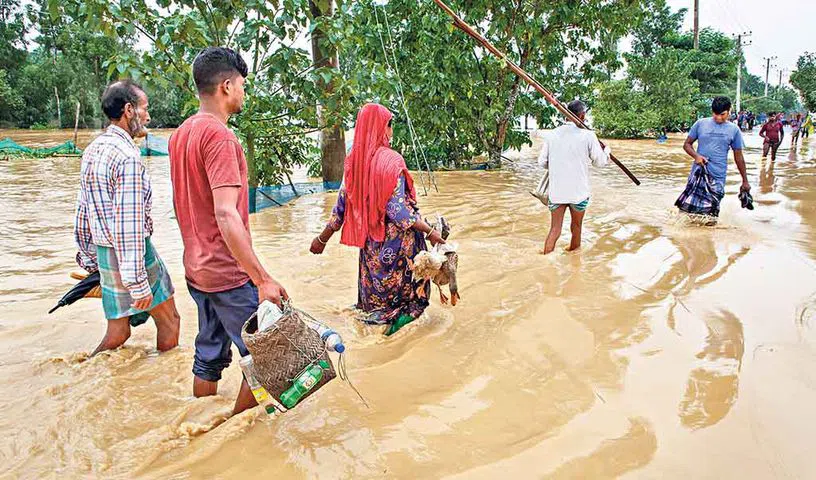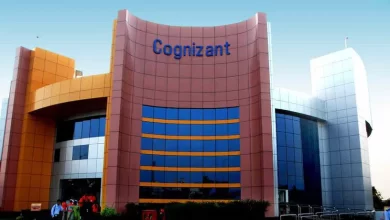
Ill-effects of growth model needs serious revisit to strike a balance between ecology, economy
By Nayakara Veeresha
Climate change has emerged as both academic and policy relevance globally in the last two-and-a-half decades. The changing geopolitical scenario, especially across democratic nations and the power shift from European or US-based to emerging economic nations, is key to this global pattern. Despite this marked shift, the response to climate change-related issues and challenges is not significant across nations, especially among the rich countries.
Sustainable Growth
There are several concepts and initiatives such as Green Budgeting, Green Economy, Circular Economy and Green Deal. However, concrete actions are missing. The Covid pandemic has brought out the limitations of macroeconomic management. The structural and institutional constraints need an alternative economic governance regime. This also calls for revisiting the neo-classical approach with a focus on embedding the tenets of institutional and behavioural economics for sustainable economic growth.
Changes in food habits, moving away from the roots of agriculture and organic farming, and dependency on constructions that consume huge resources in place of nature-friendly buildings are all damaging ecology and biodiversity. The buzzword of the circular economy is part and parcel of the global discourse on climate change. The development model pursued has focused on the linear growth pattern by distancing from the cultural roots of circular economic growth nested in ecology and sustainability.
Forces of liberalisation, privatisation and globalisation are exerting pressure on state governments to ease the process of forest clearance for mining and other natural resources
The ill-effects of the ongoing economic growth model and development path both need a serious revisit to strike a balance between the ecology, economy and development. The trickledown theory of growth, an extractive model of development, is coming at a huge cost to the environment. The growth and development attained on these premises are unsustainable. The earth’s carrying capacity in the form of biodiversity conservation and ecological equilibrium is critical to ensure progressive human development and to achieve the targets of the Sustainable Development Goals (SDGs) of 2030.
In Sync with Nature
Income inequality is one of the contributing factors to unsustainable consumption patterns. The question is, are we ready to reflect our lifestyles to fine-tune with that of nature? Do the democratically elected governments show the necessary political will to chalk out indigenous development models by taking clues from the time-tested sustainable growth strategies? Ecology and environment must be given the highest priority in the policy-making process in tandem with allocative resource efficiency. The economy nested within the ecology and the growth embedded in the sustainability component will address development-related disasters, including climate change implications.
The persistence of inaction towards climate-related challenges reflects the severe lack of political will among nations to chalk out a clear-cut action plan to mitigate climate change and its consequences. The political economy of the carbon emissions and its trade between the Global South and Northern countries is one of the major factors for the lack of consensus. It also highlights the inadequacy of the market structure to facilitate the climatic action plan among the developed and developing nations.
The emergence and commitment of the European Union (EU) in the form of Green Deal to an extent is the silver lining in achieving the target of SDGs by 2030, especially Goal 13. The objectives of the Kyoto Protocol and the Paris Agreement cannot be achieved without making a paradigm shift in the current global production and consumption patterns.
Sustainable consumption and production (SCP) play a crucial role in addressing climate change concerns by effectively preventing the frequency of natural disasters. SDG 7 emphasises the utilisation of hydro, wind and other bio-energy systems to reduce the use of fossil fuels, especially coal. This is necessary to tackle climate change and disaster reduction.
India, being the second largest coal producer next to China, needs to develop a comprehensive energy framework to tap the non-fossil fuel electricity generation. To achieve this, the current centralised energy governance and regulatory mechanism must undergo a transition to a decentralised and facilitative framework. The mitigation of climatic change and its implications requires democracy as an instrument to arrive at a consensus among the global nations. India’s role in pushing the democratic agenda is crucial for this pursuit.
Democracy for Climate Justice
The organic link between democracy and climate change responses is critical and demands a fine balance between growth and the environment. The material footprint of fossil fuels is more than four times in developed countries as compared to developing countries. This requires commitment from both developed and developing nations to cooperate on how to reduce per capita consumption of ecosystem services for sustainable usage. Accordingly, many national-level policies and strategies were formulated along the lines of SCP with budgetary allocations. The role of democracy is critical in developing globally agreed variables, especially the SDG-12 on sustainable consumption and production, with 10 out of 13 indicators still in Tier III.
The Tier III indicators mean no internationally established methodology or standards are yet available for the indicator, but methodology/standards are being (or will be) developed or tested. The economic growth model must uplift the poor by enhancing their purchasing power. This needs revisiting the economic growth model by improving institutional capacities of the state along the lines of redistributive justice.
Democracy as a form of government must work along with civil society and markets to ensure climate justice. The forces of liberalisation, privatisation and globalisation (LPG) are considerably exerting pressure on the state governments to ease the process of forest clearance for mining purposes and other natural resources. Deepening democracy through decentralised governance is key to resolving some of the challenges of climate change and its implications on sustainable development and ecological equilibrium.







